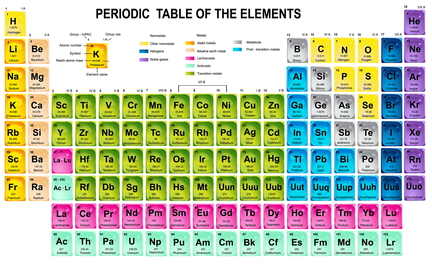MicroBiome Restore
Probiotic / Prebiotic / Complete Mineral Formula
The Most Complete Supplement of its Kind
With 26 Different Probiotic Strains
Over 80 Trace Minerals / Elements
Blended in a Proprietary Prebiotic Mix

60 Capsules
Serving Size: 2 capsules once daily(1,470 mg. minimum)
Servings Per Day: 1 / Per Container: 30
One Month Supply – $44.99
[Directions: Take 2 capsules per day with water, food, or as directed by your health care professional]
Refrigeration not required
KEEP COOL
When evaluating Probiotic supplements, there are several factors that decide which will be the most beneficial for your body. The number one factor is the number of actual bacterial strains (number of different bacteria) that will come in to your body and colonize (live and thrive). As you’ll read below it’s not only important to have a certain number of Colony Forming Units (CFU’s) but also to be able to sustain those CFU’s with the proper food and nutrition. Would you send Astronauts to Space without food? Unfortunately, that’s what many other probiotic supplements do. Not only do they have a low probiotic strain diversity, but they are also loaded with cheap fillers and low quality prebiotics. This means that the bacteria in these probiotics will have nothing to live on, and they will die off quickly. This can contribute to Small Intestinal Bacterial Overgrowth (SIBO), which can have serious health consequences.
Does your current probiotic have any of these cheap or harmful ingredients?
- Silica (potentially harmful, indigestible filler)
- Inulin (indigestible carbohydrate filler)
- Cellulose (indigestible wood pulp)
- Microcrystalline cellulose (refined indigestible wood pulp)
- Magnesium stearate (machine lubricant/excipient)
- Vegetable stearate (biological form of magnesium stearate from plants)
- Oligosaccharides (cheap prebiotics with poor micronutrient profiles)
If your probiotic supplement contains any of the above ingredients, it is a sign of a low-quality product that does not contain the appropriate micronutrients to sustain you or the bacteria it delivers. MicroBiome Restore™ contains everything the bacteria need to colonize, feed and sustain themselves in the body. This allows the bacteria in your gut to develop into a healthy ecosystem, discouraging any particular strain from dominating the others. With over 80 trace minerals and certified organic prebiotics, MicroBiome Restore™ feeds every single bacteria a complete diet of macronutrients and micronutrients, ensuring that the community of organisms living in your gut is healthy and thriving.
MicroBiome Restore™ was developed to address the ecological and epidemiological nightmare that has been created by a food system awash in toxic rescue chemistry (1) — herbicides, pesticides, insecticides, fungicides, etc. and their metabolites, poisoning the general public and polluting water supplies (2) — of which the most damaging may be products that contain glyphosate. (3) Added to this is the plague of increasingly stronger antibiotics and their metabolites, which also contribute to the problem. (4)
All animals, humans included, have a symbiotic relationship with microbes. (5) In fact, there are vital nutrients that humans cannot obtain in proper quantities without them. (6) As the food supply has become increasingly hostile to the maintenance of proper microbial balance, so has the need for probiotic and prebiotic supplementation in order to ward off the diseases and degenerative conditions that microbial imbalance inevitably brings. (7) Although proper food selections and reliance on organic sources can help minimize these effects, they by no means provide complete protection. (8)
Why Probiotics Need Minerals & Why Good Mineral Absorption Requires Probiotics
It has been known for many years that bacteria, the microscopic animals that they are, have mineral nutritional requirements, just like we do. (9) It has also been established that microbes are ubiquitous in our geophysical environment and among its most transformative agents, leaving no element untouched. (10) They are even capable of neutralizing radioactive materials, like cesium, “which they transmute to stable, non-radioactive elements.” (11)
Conversely, those with even an elementary knowledge of probiotics know that certain bacteria (in this case, Lactobacilli, as found in MicroBiome Restore) are vital to human nutrient by enhancing the production of Vitamins A, B2, B3, B5, B6, B12, K, biotin, and bile acids. (12) Fewer know that bacteria play an important role in making vital minerals like calcium bioavailable for better assimilation. (13)(14) Many probiotics use indigestible carbohydrates like oligofructose,
galactooligosaccharides and inulin to “bind and sequester the minerals and these carbohydrate-mineral complexes pass unabsorbed through the small intestine onto the colon when the minerals are released from the complex and absorbed.” (15) This can be devastating to bacterial colonies, since many micronutrients are necessary for their reproduction, and your eventual digestion when they die.

The Scope of Man’s True Mineral Nutrient
Requirements Has Been Dramatically Understated
By Orthodox Nutrition & Regulatory Authorities
What does the USDA include in our daily mineral requirements? To the present date, the only minerals recognized as warranting consideration as human nutrients and/or nutritional labeling by the orthodox community are: boron, calcium, chromium, copper, fluoride, iodine, iron, magnesium, manganese, molybdenum, nickel, phosphorus, selenium, vanadium, and zinc, or fifteen elements. (16) The USDA recognizes the following minerals as nutrients: calcium, copper, flouride, iron, magnesium, manganese, phosphorus, potassium, selenium, sodium, and zinc, or eleven elements. (17) By contrast, the U.S. FDA, for the purposes of labelling, recognizes the following: sodium, potassium, calcium, iron, phosphorus, iodine, magnesium, zinc, selenium, copper, manganese, chromium, molybdenum, and chloride, or fourteen elements. (18) Were one to believe these institutions, one would conclude that man’s mineral nutritional needs are on par with house plants. (19)
What a coalescence of time, thought, observation, experimentation, and genius have taught us, however, is that we are not house plants. For optimal health, our needs are different. Our mineral requirements are much more varied, something that is reflected in the omnivorous human dietary smorgasbord that one finds as they travel the world. (20)
The human genome doesn’t call for 11 or 14 or 15 officially-recognized minerals. It calls for at least 64 . . . and the probiotics necessary to maximize their absorption. (21)
